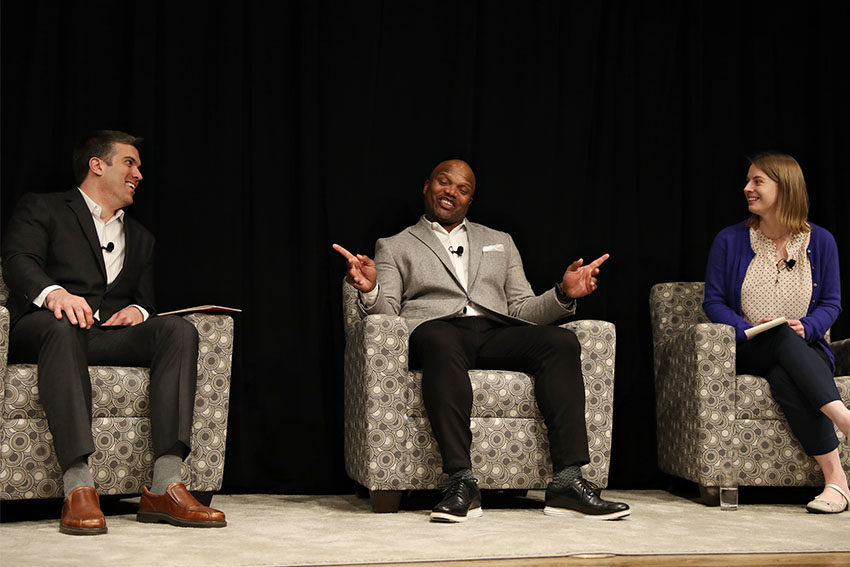Four days before the Super Bowl, football players, doctors and sports journalists sat down to discuss the dangers of repeated head trauma in football and how to find a safer path forward.
UT’s Center for Sports Communication Media’s hosted a conversation Thursday about the future of football during the McGarr Symposium on Sports and Society. The conversation comes at a time when awareness of football’s long-term brain damage risk is increasing. UT’s football team has had at least three former players diagnosed with chronic traumatic encephalopathy, a neurodegenerative disease caused by repeated head trauma, according to the Concussion Legacy Foundation.
Communication studies professor Michael Butterworth, who directed the event and is the director of the center, said the central goal of the panel was not to fix the problem but model how to talk about it.
“As we will confirm today, there is no simple solution,” Butterworth said. “In short, we are in need of not just a conversation about head trauma and the future of football but also a vocabulary for how to have that conversation.”
Kathleen Bachynski, a postdoctoral fellow at New York University Langone Health, said head trauma in football is a public health issue, and safety interests should be placed above entertainment.
“Because there are over 3 million football players in the United States every year, that’s one reason this is a public health issue,” Backynski said. “If you were designing these sports from the ground up from the public health point of view, you’d be designing a sport that you can be able to play for the entire rest of your life, until you’re 60 or 70, which cannot be said of tackle football.”
Panelists talked about increasing player awareness of health risks, increasing penalties for head-to-head collisions and starting kids in the sport much later than elementary school.
Several panelists agreed efforts for change are complicated by the fact football is a well-loved and lucrative sport.
Michael Rosenthal, who played college football at Notre Dame and later played nine seasons in the NFL, said he would go back and play again despite knowing about the elevated risks of chronic traumatic encephalopathy.
“Would I do the journey all over again?” said Rosenthal, who is now the head football coach at Austin High School. “Absolutely.”
Sports journalist Patrick Hruby said both fans and industry leaders will have to reckon with safety issues to move forward.
“If you want to preserve, protect and enhance this game, in the future, it’s going to take changes,” Hruby said. “This is something you need to do for the game you love.”




















